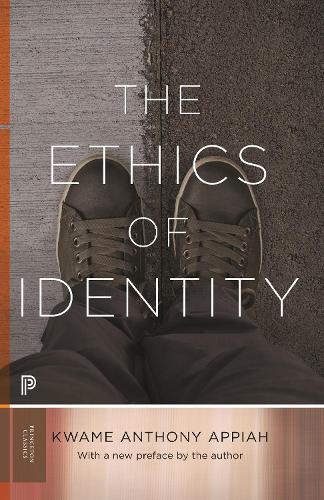
The Ethics of Identity
(Paperback)
Available Formats
Publishing Details
The Ethics of Identity
By (Author) Kwame Anthony Appiah
Princeton University Press
Princeton University Press
1st December 2023
United States
Classifications
General
Non Fiction
170
Physical Properties
Paperback
392
Width 140mm, Height 216mm
Description
A bold vision of liberal humanism for navigating todays complex world of growing identity politics and rising nationalism
Collective identities such as race, nationality, religion, gender, and sexuality clamor for recognition and respect, sometimes at the expense of other things we value. To what extent do they constrain our freedom, and to what extent do they enable our individuality Is diversity of value in itself Has the rhetoric of human rights been overstretched Kwame Anthony Appiah draws on thinkers through the ages and across the globe to explore such questions, developing an account of ethics that connects moral obligations with collective allegiances, and that takes aim at clichs and received ideas about identity. This classic book takes seriously both the claims of individualitythe task of making a lifeand the claims of identity, these large and often abstract social categories through which we define ourselves.
Reviews
"Nobody is better placed than Anthony Appiah to make the case for rooted cosmopolitanism."---Alan Ryan, New York Review of Books
"Suave and discerning. . . . Appiah seeks to reorient political philosophy by returning to the example set by John Stuart Mill. . . . For all of Appiahs philosophic precision, his writing often resembles not Mills but that of Oscar Wildeto my mind, the finest prose stylist of the 19th century. . . . The superb rhetorical performance of this book offers the most persuasive evidence for his case. . . . To read The Ethics of Identity is to enter into the world it describes; it is also to imagine what it might be like to live in so urbane and expansive a place."---Jonathan Freedman, New York Times Book Review
"[An] impressive book. . . . [A] thorough exploration of moral concepts such as authenticity, tolerance, individuality, and dignity, and how they are all connected to the task of making a life. . . . It is hard to know what to admire most about this book: the urbane elegance of Appiah's prose, the reach of his knowledge, or the sheer philosophical sharpness of his analysis."---Carl Elliott, American Prospect
"Kwame Anthony Appiah's The Ethics of Identity is a wonderful book. It is as rigorous as one expects the best philosophy to be, yet it is witty, humane, and engaging in ways that academic philosophy is only rarely. It is the best account of the ethics of liberal society that we possess."---Daniel Weinstock, Ethics
"Kwame Anthony Appiah undertakes to combine a form of liberalism that aspires to universal validity with a full recognition and substantial acceptance of the important cultural and ethical diversity that characterizes our world."---Thomas Nagel, New Republic
"This book, with its fluid, inviting phrasing, is exceptionally well written. . . . It is effective, insightful, and thought-provoking. . . . Appiah clears the way for a justification of a narrative, pragmatic, particular relations-based cosmopolitanism, which is universal without the necessity of theoretical agreement." * Choice *
"This new book aims to lay the groundwork for a new version of liberal theory adequate to the challenges of our time. . . . I find Appiah's overall conception of liberalism very congenial. . . . If Appiah succeeds in attenuating the force of such claims by undermining the theoretical conceptualizations and arguments supporting them, and integrating the valid claims of identity into liberal theory, he will have contributed very significantly to the reconstruction of liberalism."---Leonard J. Waks, Education and Culture
"The conclusion Appiah eloquently affirms is spot on: the key to living a moral life is clearly not to seek to forego identity. On the contrary, it is to put identity in the service of becoming ethical human beings."---Joshua Jelly-Schapiro, Tikkun
"Kwame Anthony Appiah, a man of multiple cultures and languages who is able to question culture itself, leaves us better able to contemplate how to lead life well and to relate ethically to others in the process."---E. James Lieberman, PsycCritiques
"Appiah, . . . an elegant writer, observes that we are not simply members of groups or products of culture. Individuality and autonomy, he argues, are fundamental to personhood in all social and cultural contexts."---David Moshman, Journal of Applied Developmental Psychology
"[This is] a book that does [a] thorough and original a job of exposing the deep paradoxes within identity and confronting the serious ethical dilemmas to which they give rise."---John E. Joseph, Journal of Multilingual and Multicultural Development
Author Bio
Kwame Anthony Appiah is professor of philosophy and law at New York University. His many books include the prize-winning Cosmopolitanism: Ethics in a World of Strangers and The Lies That Bind. His column, The Ethicist, appears weekly in the New York Times Magazine.
